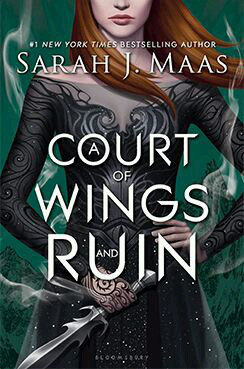 Look Back in Anger by John Osborne
Look Back in Anger by John Osborne
My rating: 2 of 5 stars
There is absolutely no doubt that John Osborne changed the face of British theatre when he wrote ‘Look back in Anger’. The first of the new post-war wave of ‘Angry Young Men’, you can see from the very opening lines that the epithet is well deserved as the chief protagonist, Jimmy Porter, spews invective from his mouth in an instant.
This reactionary writing, forcing realism onto the stage and giving voice to the anti-establishment thinkers of the day, was certainly a much-needed injection into the bloodstream of the theatre; but is the play itself actually any good? A lot has changed since 1956 and it may be that the play has outlived its purpose.
Indeed I think exactly that. For me, Osborne’s play reads like a second-rate ‘A Streetcar Named Desire’ of Tennessee Williams. The connections between the two are so obvious, in setting, characters and themes, it’s a wonder no one really seems to notice it. The American play came out nine years earlier and Osborne surely knew it. But while ‘Streetcar’ remains timeless because of the playwright’s fascination with the personality of his characters, Osborne tells us almost nothing at all of note about his.
Part of this is because Osborne tries to do too much in just three acts. A guy abuses his wife and friend, loses both, shacks up with someone else and loses her too but sort of gets his wife back. BOOM – most of that occurring in the second half of the play! It’s hard to keep track. On one page you’re reading of a woman declaring her undying love (why she would, God only knows) to Jimmy and a couple of pages later she’s leaving him. There’s no room for character development and so the whole premise falls apart. We can’t really believe or sympathise with any of these people. They’re not real.
Most hopeless of all is the ‘angry young man’ himself. Porter is a spoilt brat of a man who never grew up, needs a good slap and sent to his room and told to ‘man up’. He is angry, but doesn’t know about what. He lashes out at everyone and blames them – but for what? He has a job which pays the bills, is educated, has a wife and friend…just what is Jimmy so pissed about? I know, I know, there’s more to life than just ‘making ends meet’ but honestly, Jimmy lives in relative comfort and chooses to be angry rather than having good reason.
Osborne tries to suggest that he mourns the loss of the Empire, the former way of life of the Raj, and makes this connection with Alison, the wife’s, father who was a colonel in the Raj. It’s not convincing. For the majority of British living in the Empire days, they were still too poor to travel or work abroad. Most remained in the UK and it was only the elite and military, on the whole, who led the life Porter never had but hates society for taking from him anyway. How arrogant! This is a man who is angry because he’s not pampered enough – with his wife, and then his lover, doing his ironing and expecting anyone but him to make his dinner, make him cups of tea and presumably doing anything else in the house which needs doing. Porter is not angry because he is deprived; he’s angry because he is not king.
That an entire generation took up arms in the spirit of this play worries me considerably. Anger became in vogue but what is taken up as a cerebral exercise by the educated elite (as happens here) eventually filters down to the lower classes and, if you like, the common masses. I grew up in the era when this happened – when real poverty struck and the ‘angry young men’ went out and smashed up windows, beat up whoever they could find and blamed scapegoats like foreigners for their misery and hardship. They did with their fists what Porter does with his mouth – but more justifiably so despite the horrific nature of their expressions.
Both ethically and from a production point of view then, Osborne’s play fails to meet the standard I would expect of writing today. Whereas Tennessee Williams, Miller, Shaffer and a host of other playwrights from the 20th century keep their relevance by taking us into the meaning of humanity (which never changes and is universal), Osborne just rants – blindly, incoherently and without an actual target to focus on. Yes, his play shook things up in the late 50s because it was so different to what had gone before, but that should not be mistaken for meaning this is actually any good. Like a good catalyst, it caused a chain reaction (‘set off a landmine’ as Alan Sillitoe famously put it) but was left unchanged itself. It should go back in the cupboard now.
I may be going too far at this point in judging Osborne so harshly for trying to revive his early success with a return to these characters in 1989. Now Porter has a daughter, same name as his wife (why?!), who also does the ironing for him and hates her father. I admit I’m judging without seeing it or reading the script but…I’m not surprised the production bombed after just a few weeks. The desire for blind raging had long since abated.
Perhaps the one saving grace of this play is that the idea of the ‘Angry Young Man’ must surely have influenced the creation of the comedy characters Hawkeye Pierce and Alf Garnett who in turn must have inspired the ‘Grumpy Old Man’ idea of the likes of comedy character Victor Meldrew. These characters score highly over Jimmy Porter for two reasons: Firstly, they are funny – and humour is vitally important when wanting to hit an audience hard with true anger; secondly, they all have a target. You can see where their anger is directed and in doing so also see their despair for themselves.
We can get behind such characters and either laugh at them (for we know people who are so like them) or laugh with them (for we see ourselves within). With Jimmy Porter I just want to walk away. And who would blame me?
View all my reviews
 Writer and journalist D K Powell is the author of the bestselling collection of literary short stories “The Old Man on the Beach“. His first book, ‘Sonali’ is a photo-memoir journal of life in Bangladesh and has been highly praised by the Bangladeshi diaspora worldwide. Students learning the Bengali language have also valued the English/Bengali translations on every page.
Writer and journalist D K Powell is the author of the bestselling collection of literary short stories “The Old Man on the Beach“. His first book, ‘Sonali’ is a photo-memoir journal of life in Bangladesh and has been highly praised by the Bangladeshi diaspora worldwide. Students learning the Bengali language have also valued the English/Bengali translations on every page.
Both ‘The Old Man on the Beach’ and ‘Sonali’ are available on Amazon for kindle and paperback. Published by Shopno Sriti Media.
D K Powell is available to speak at events (see his TEDx talk here) and can be contacted at dkpowell.contact@gmail.com
Advertisements Share this:




